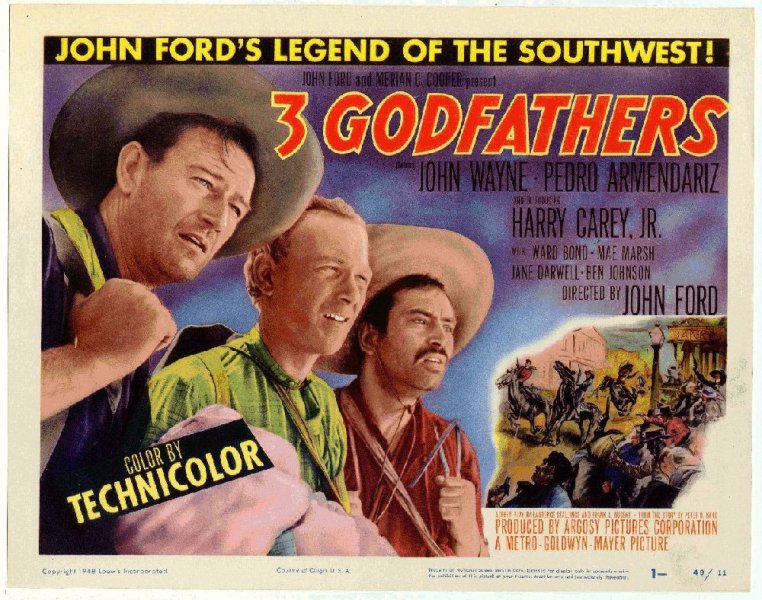Doctor Strange
I'll Lock Up
- Messages
- 5,272
- Location
- Hudson Valley, NY
Excellent review, as always! But...
Note that 3 Godfathers was remade by John Ford in 1948, in color, starring John Wayne.

Interestingly, it was Ford's second pass at the story, he'd previously directed a lost silent version back in 1916!
I've seen the 1948 Ford film - which is, of course, excellent - but not the 1936 version. It's on my list...
Note that 3 Godfathers was remade by John Ford in 1948, in color, starring John Wayne.

Interestingly, it was Ford's second pass at the story, he'd previously directed a lost silent version back in 1916!
I've seen the 1948 Ford film - which is, of course, excellent - but not the 1936 version. It's on my list...



